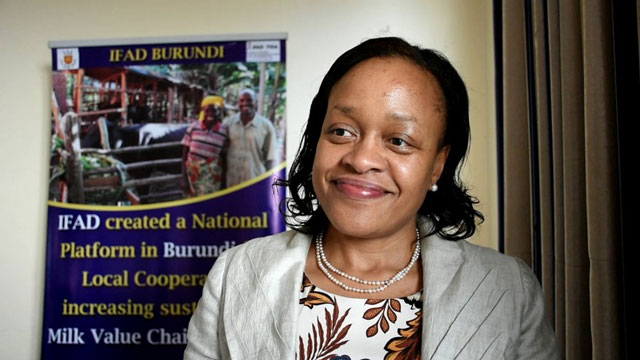
Kampala, Uganda | THE INDEPENDENT | In a move that underscores the International Fund for Agricultural Development’s (IFAD) commitment to supporting small-scale farmers and small and medium enterprises (SMEs) in East Africa, Sara Mbago-Bhunu, Director of the organization’s East and Southern Africa Division, recently undertook a critical visit to Uganda. The visit served as a platform to assess ongoing projects, explore new partnerships, and address key challenges faced by these critical stakeholders in the agricultural sector.
Mbago-Bhunu emphasized Uganda’s crucial role in driving agricultural development within the region.
“Uganda’s vibrant agricultural landscape, characterized by a diverse range of small-scale farmers and emerging SMEs, presents a unique opportunity for IFAD’s intervention,” she stated.
“Understanding their needs and challenges is paramount to formulating effective strategies that empower them and contribute to a more sustainable and inclusive food system,”
While small-scale farmers produce the bulk of Uganda’s food, they often face significant hurdles in accessing markets, thereby hindering their growth and income generation.
Mbago-Bhunu identified SMEs as key partners in bridging this gap.
“By acting as vital intermediaries, SMEs can connect farmers to markets, provide them with essential services, and facilitate value addition, ultimately contributing to a more robust and sustainable agricultural ecosystem,” she explained.
The sustainability of this approach hinges on fostering a collaborative environment where SMEs and farmers can work together. I
FAD’s initiatives, such as the Rural Resilience Initiative, actively promote farmer-led organizations and cooperative structures, empowering them to collectively negotiate better prices and access resources more efficiently.
Mbago-Bhunu highlighted the need for innovative financing mechanisms tailored to the specific needs of these businesses. She said despite their immense potential, access to finance remains a major challenge for many SMEs, limiting their ability to invest in growth and expansion.
She said IFAD’s significant commitment of $720 million to climate finance can be leveraged by both SMEs and farmers to adopt climate-resilient practices, enhancing their long-term sustainability and resilience in the face of climate change.
In Uganda specifically, IFAD is actively exploring partnerships with local financial institutions to develop dedicated credit lines for agricultural SMEs and small-scale farmers.
Mbago-Bhunu also expressed optimism about the discussions at COP28, highlighting the potential for increased climate finance, technology transfer and policy interventions.
On Dec 2nd, IFAD and partners unveiled a new financing mechanism to boost support to small-scale food producers in rural communities in Kenya, Rwanda, Tanzania and Uganda to adapt to a changing climate.
The Africa Rural Climate Adaptation Finance Mechanism (ARCAFIM) is a large-scale model of tailored finance for poor small-scale food producers and rural microenterprises. Small and medium-sized rural agribusinesses will also access concessional loans through this new scheme. The mechanism is scalable and can be replicated in other countries and regions.
“We need to invest at speed and scale to ensure rural populations, including rural small-scale food producers, can adapt to climate impacts now,” said Alvaro Lario, President of IFAD, at ARCAFIM’S launch event at the climate change conference (COP 28). Lario emphasized IFAD’s commitment to making a positive impact on people’s lives through innovative financial solutions such as ARCAFIM, bringing together funding from like-minded partners and leveraging collaboration with the private sector.
 The Independent Uganda: You get the Truth we Pay the Price
The Independent Uganda: You get the Truth we Pay the Price





